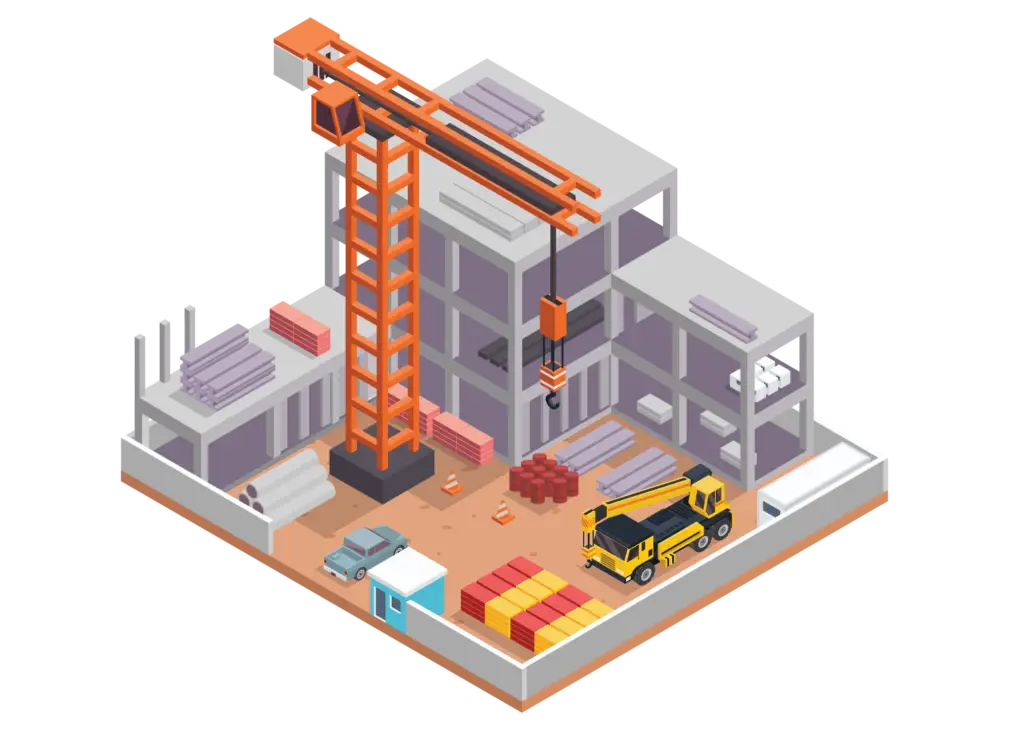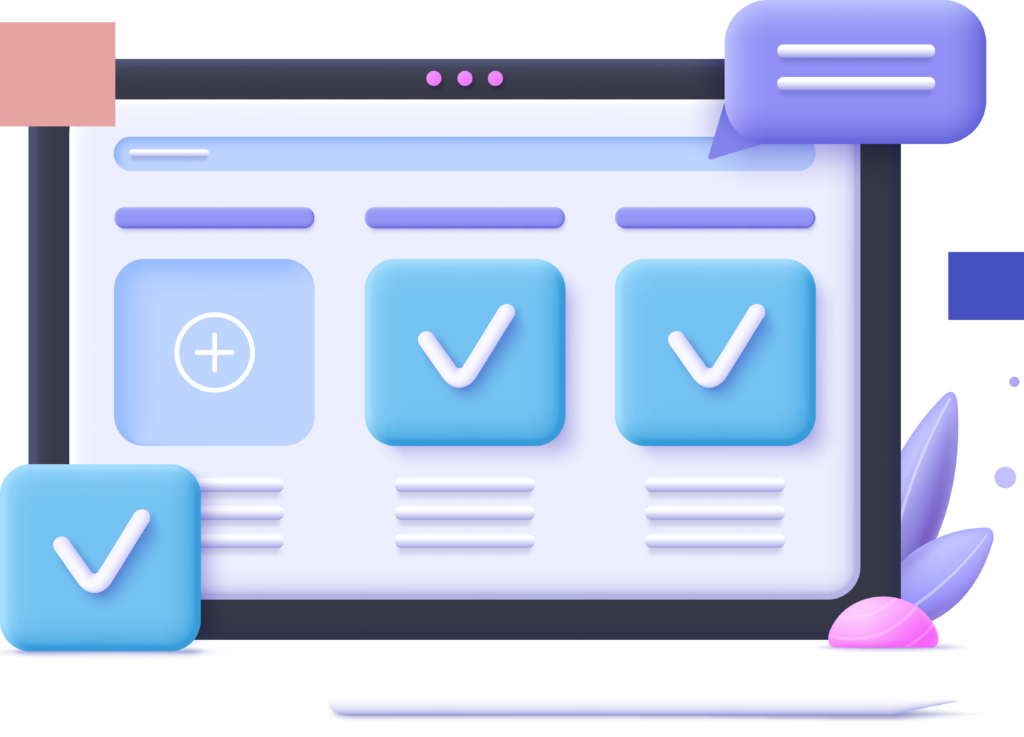What are the Quality Challenges Faced by the Construction Industry?
Every construction company desires to deliver quality work within the given time frame and set budget limits. Finding a balance between cost, quality, and time proves to be the secret behind the successful completion of the construction project.
But myriad of challenges disrupt the workflow and impact the project outcome, productivity, budget, timeline and ultimately customer satisfaction as well as profits.
Some of these challenges are-
- Replicating successful practices across different projects
- Non-centralised design changes and modifications leading to discrepancies and confusion
- Absence of set guidelines of working for workforce
- Workforce training and skill variations
- Regulatory compliance complexities, including building codes, guidelines, and safety regulations
- Communication and collaboration gaps among stakeholders

Implementing a Quality Management Software (QMS) can help construction companies address these challenges by providing a systematic and structured approach to quality management, process improvement, and risk mitigation. It enhances the overall effectiveness and efficiency of construction operations, leading to improved project outcomes and customer satisfaction.
One such next-gen and robust QMS software is QualityPro for the construction industry.

How Does Quality Management System in Construction Industry Help Address These Challenges?
QualityPro is a comprehensive, web-based QMS software solution that simplifies the quality management tasks like Document Management, Risk Management, Complaint Management, Audit Management, NC/CAPA Management, Training Management, Change Management, etc. within a construction company.
Moreover, by documenting, circulating, and adhering to ISO 9001 standards, QualityPro ensures consistency in the operations, reducing chances of defects and deviations, improving the quality.
It even offers a personalised hub known as the "QMS Cockpit" that allows to control, manage, and access documents, tasks, approvals, and notification, all from a single focal point.
Your path to better quality management starts here
Prominent Modules of QMS for Construction Company

Efficiently handle non-conformance (NC) issues like deviation from established procedures, shortcoming in program implementation, etc. Perform root cause analysis and apply corrective actions to avoid recurrence…Read More
Effectively deal with complaints like inappropriate execution of plan, gaps in communication, etc. Track the status and resolution of such complaints to establish positive relations with stakeholders…Read More
Identify the learning gaps like procedural knowledge, legal requirements knowledge, communication lacunas etc. and schedule trainings for employees. Track and store training progress of staff for future reference...Read More
Smoothly incorporate change in the organisation without disturbing day-to-day chores. Establish a proper workflow for documenting changes, update the concerned, review its impact and manage every step of the change control process...Read More
Manage organisational documents like procedures, certificates, SOPs, fund raising documents etc. Collaborate simultaneously on the same document version, enhancing teamwork….Read More
Manage various risks like financial risk, cybersecurity risk, operational risk, governance risk, etc., associated with construction industry. Mitigate probable risk and drive continuous improvement across the organisation …Read more
Make organisation audit ready, be it internal or external, by ensuring compliance with various regulations. Conduct mock audits and find the gaps to fill during real audits and prevent penalties and reputational dents...Read More
Don’t wait! See how various organisations streamlined quality with QualityPro
Prominent Modules of QMS Software for Construction Industry
Efficiently handle non-conformance (NC) issues like deviation from established procedures, shortcoming in program implementation, etc. Perform root cause analysis and apply corrective actions to avoid recurrence…Read More
Effectively deal with complaints like inappropriate execution of plan, gaps in communication, etc. Track the status and resolution of such complaints to establish positive relations with stakeholders…Read More
Identify the learning gaps like procedural knowledge, legal requirements knowledge, communication lacunas etc. and schedule trainings for employees. Track and store training progress of staff for future reference...Read More
Smoothly incorporate change in the organisation without disturbing day-to-day chores. Establish a proper workflow for documenting changes, update the concerned, review its impact and manage every step of the change control process...Read More
Manage organisational documents like procedures, certificates, SOPs, fund raising documents etc. Collaborate simultaneously on the same document version, enhancing teamwork….Read More
Manage various risks like financial risk, cybersecurity risk, operational risk, governance risk, etc., associated with non-profit organisations. Mitigate probable risk and drive continuous improvement across the organisation …Read more
Make organisation audit ready, be it internal or external, by ensuring compliance with various regulations. Conduct mock audits and find the gaps to fill during real audits and prevent penalties and reputational dents...Read More
Why Choose QualityPro for Construction Industry?
Implementing QualityPro solution benefits the construction industry in numerous ways-
- Effortless Navigation : No technical expertise? No problem! QualityPro DMS boasts a user-friendly design that ensures smooth navigation. It’s simple, clear, and intuitive.
- Web-Based: Enjoy cost-effective implementation with QualityPro’s web-based platform. Experience seamless accessibility, real-time collaboration, and efficient tracking of quality-related tasks. Plus, automated updates ensure compliance with the latest industry standards.
- Customisable to your needs: Designed to adapt to unique data requirements, QualityPro allows businesses to customise fields in line with their specific policies.
- Quick & Flexible implementation: Choose the implementation approach that suits you best—opt for self-implementation or vendor-guided setup for a seamless onboarding experience.
- Built for businesses of all sizes: From startups to large enterprises, QualityPro caters to organisations of all sizes.
- Scalable for future growth: As your business expands, QualityPro effortlessly scales to accommodate increasing demands, ensuring long-term adaptability.
- Secure & Reliable: With authenticated logins, encrypted data, industry-leading security measures, and a robust three-tier backup and recovery system, QualityPro guarantees data security and peace of mind.

“Just one click, and you are one step closer to a transformation”
Know right away how QualityPro can transform your business
FAQs
A QMS introduces structured and standardised processes that strengthens construction project delivery by minimising defects, ensuring adherence to building codes and statutory regulations, and streamlining construction workflows. It supports consistent execution across all trades, reduces programme delays, and enhances the overall quality of output through robust quality control and assurance protocols embedded in the project lifecycle.
Quality management is vital in construction to ensure that built assets conform to regulatory standards, reduce the likelihood of remedial works, and exceed client expectations. A well-structured QMS forms the backbone of site operations by facilitating risk mitigation, upholding workmanship standards, and maintaining Health, Safety, and Environmental (HSE) compliance across all construction phases—from pre-construction to handover.
QMS software tailored for the construction industry simplifies statutory compliance through automated recordkeeping, digital audit trails, and live tracking of building regulations and standards. It enables construction companies to remain aligned with frameworks such as ISO 9001, and industry-specific guidance, ensuring that each phase—from design and procurement to site execution—is carried out in line with best practice and legal requirements.
A QMS facilitates proactive defect prevention through scheduled inspections, and automated Non-Conformance Reporting (NCR). By addressing issues at source, construction teams can reduce material wastage, limit project overruns, and avoid costly remedial actions—ultimately safeguarding project budgets and delivery schedules.
When choosing a QMS solution for construction, look for the following essential features:
- Centralised document control for site drawings, specifications, compliance registers and such
- Automated inspection scheduling and audit trail tracking
- Real-time dashboards and analytics for informed project governance
- Corrective and Preventive Action (CAPA) modules for quality resolution
- Mobile-enabled access for site operatives, supervisors, and contract managers
Small to medium-sized enterprises (SMEs) in construction can leverage a QMS to standardise site procedures, maintain regulatory compliance, and strengthen their reputation through improved build quality. Scalable QMS platforms enable SMEs to adopt tiered quality controls, reducing operational risk and positioning them competitively against larger Tier 1 contractors in tendering and delivery.
Digital QMS platform, like QualityPro, promotes transparent, real-time communication among key stakeholders—such as site managers, subcontractors, design consultants, and quantity surveyors—by offering shared access to documentation, task tracking, and quality alerts. This fosters alignment across the supply chain, reduces coordination errors, and enhances issue resolution throughout the work stages.
Absolutely. Modern QMS platforms are highly configurable and can be tailored to suit the specific requirements of diverse construction projects—whether residential housing developments, commercial fit-outs, or civil infrastructure works. Custom-built workflows, trade-specific checklists, and sectoral compliance modules make it possible to align the QMS with project-specific deliverables, timelines, and client requirements.




